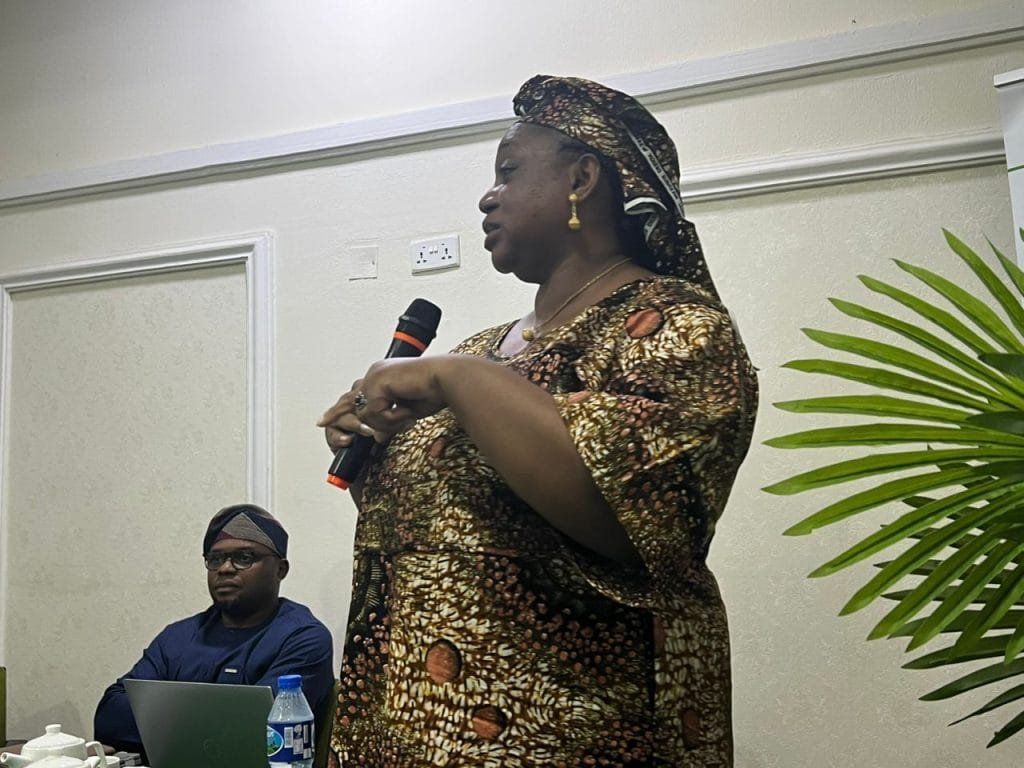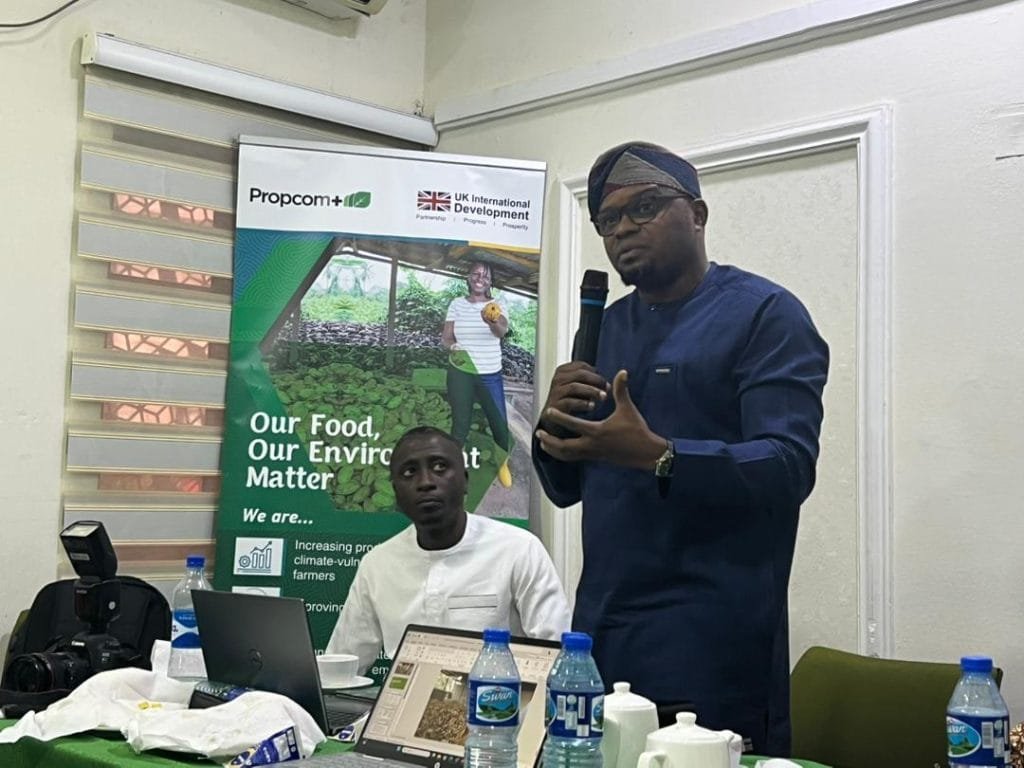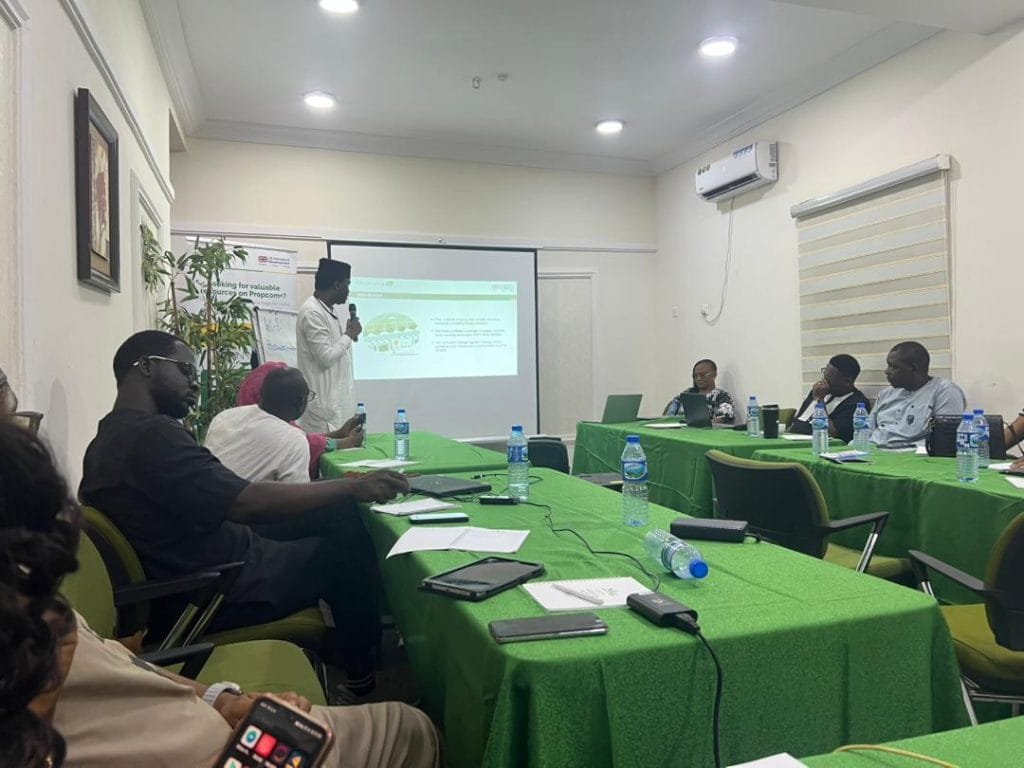The UK Foreign, Commonwealth and Development Office (FCDO)-funded Propcom+ programme has organised an extensive training session for media practitioners on Climate-Smart Agriculture Reporting.
The programme, which prioritises climate-smart agriculture and inclusive market development, is an eight-year effort to strengthen rural economies and build resilience to climate change.
Speaking during the training in Yola, Adamawa state, the Country Representative/Political Director, Propcom+, Dr. Adiya Ode, outlined the scope and objectives of the programme.

She noted that PropCom+ is driven by the urgency to address persistent and emerging agricultural challenges that have outlived earlier interventions.
According to Dr. Ode, the current programme builds on nearly two decades of work that began in 2003.
While the initial intention was to phase it out after a set period, she explained that the complexity of Nigeria’s agricultural environment demanded continued engagement, particularly as new problems kept emerging alongside existing ones.
She traced the evolution of the programme through its various phases, including PropCom Mai-Karfi, which incorporated private sector partnerships and mechanisation.
Dr. Ode stated that the most recent version, PropCom+, was conceived in response to a changing climate, land degradation, low productivity, and growing conflict over agricultural resources.
A key turning point, she explained, was the decision to integrate climate change as a central component of the programme’s strategy. This led to the creation of PropCom+, with funding sourced from the UK’s contribution to International Climate Finance (ICF).
Although the full rollout began in 2023, Dr. Ode noted that implementation had actually commenced earlier, in 2022, through a pilot partnership with HarvestPlus, an organisation that remains a core partner.
She emphasised that the programme’s overarching aim is to enable smallholder farmers and rural enterprises to improve their incomes while adapting to climate pressures.
According to her, PropCom+ recognises that climate change is not a distant threat but a present and escalating reality that directly affects food production and rural livelihoods.
Dr. Ode explained that the programme uses a Market Systems Development (MSD) approach.
Rather than intervene directly in the market, PropCom+ works by supporting and facilitating the actions of market actors and strengthening the policy environment that enables agricultural markets to function efficiently and sustainably.
She stated that this strategy is designed to avoid market distortions and to ensure that interventions are both scalable and sustainable in the long run.
The MSD model, she noted, allows the programme to respond to local needs while also addressing structural barriers to market access and efficiency.
A major pillar of the programme, Dr. Ode added, is gender inclusion. She pointed out that of the 3.79 million beneficiaries targeted by 2030, at least 50 percent must be women or women-led SMEs.
This, she noted, reflects both demographic realities and the need to empower women in a sector where their participation has historically been limited.
In terms of geographical coverage, Dr. Ode explained that the programme operates across two tiers of states. Tier 1 states, which include Jigawa, Kaduna, Kano, Gombe, Adamawa, and Katsina, serve as the main intervention zones.
These are areas where the full scope of the programme’s activities is deployed. According to her, these northern states are critical for national food security and require deeper engagement, while Tier 2 states, primarily in the South, focus on sustainable commodities and agroforestry. These include Edo, Ekiti, Cross River, Ondo, and Enugu.
Dr. Ode stated that in these regions, PropCom+ is helping to rehabilitate forestry resources and promote climate-friendly practices in cocoa and oil palm production.
Highlighting the programme’s flexibility, she noted that interventions are guided more by market realities than state boundaries.
Dr. Ode explained that agricultural markets often transcend administrative borders, and as such, PropCom+ follows value chains wherever they lead, ensuring support is not arbitrarily cut off due to geography.
She also stressed the importance of stakeholder collaboration, including the media, adding that the programme views journalists not merely as observers but as partners in driving agricultural transformation.
Dr. Ode acknowledged the media’s role in shaping public discourse and mobilising support for rural development.
“Agriculture is central to everyone’s lives, regardless of profession, because it determines food availability and quality.” For this reason, she explained, the team at PropCom+ approaches the programme with both professionalism and passion.
Meanwhile, the target is to improve the livelihoods of 3.79 million smallholder farmers and agricultural small and medium-sized enterprises (SMEs) in Nigeria by the year 2030.
On his part, Strategy Director, Propcom+, Dr. Olumide Ojo, discussed the impacts of the programme and its contribution to food security, farmers’ empowerment and environmental sustainability.
Specifically, Dr. Ojo revealed that Propcom+ recently facilitated the entry of a peanut processing company into Kano, connecting the firm directly with local groundnut farmers. “Nigeria is the world’s third-largest groundnut producer, yet most peanut spreads in the country are imported.” According to him, the intervention is a clear demonstration of how targeted linkages can unlock opportunities for local farmers while reducing import dependence.
“Our focus is not just on production, we do a value-chain-wide duty, connecting the farm to the final product and everything in between.

“Propcom+ works under three pillars: P1 supports mature and commercially viable markets to scale; P2 promotes innovation to reduce carbon footprints, emissions, and foster youth and women inclusion; and P3 influences policies and regulations to create an enabling environment for agribusiness.
“Our role is facilitation—using tools like linkages, grants, advisory support, research, and advocacy. Everything we do is grounded in market systems development, where we analyse constraints, design interventions, and identify private sector partners who can scale solutions,” Dr. Ojo explained.
Media experts who benefited from the training described the capacity-building session as both impactful and timely.


